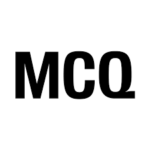MCQ – Multiple Choice Question

The Full Form of MCQ is Multiple Choice Question. It is a type of assessment or test format where respondents or students are presented with a question or statement and provided with a set of options to choose from. The options typically include one correct answer and several incorrect answers, known as distractors. The respondent must select the most appropriate or correct option among the choices provided.
What is MCQs
Multiple Choice Questions are widely used in educational institutions, such as schools, colleges, and universities, as well as in various competitive examinations. They are valued for their ability to assess a wide range of knowledge, including factual recall, comprehension, analysis, and problem-solving skills.
MCQs are a type of objective assessment where test-takers are presented with a question and multiple answer options. The test-taker must choose the correct answer(s) from the given choices. These questions can have a single correct answer or multiple correct answers. Here’s a typical structure of an MCQ:
Question: What is the capital of France?
- A. Berlin
- B. Paris
- C. London
- D. Madrid
In this example, option B (Paris) is the correct answer.
We have compile a wide array of Multiple Choice Questions (MCQs) on different tech topics at LearningWerning. There are questions about popular applications like MS Word, Excel, and PowerPoint, as well as insights into Cloud Computing with AWS and Microsoft Azure. Explore basics in Computer Fundamentals, covering hardware, portable computing, and printers. Dive into Cyber Security with CompTia Security+ and CISSP questions, and understand Networking with Comptia N+, CCNA, and CCNP MCQs. For programming enthusiasts, there are questions on C, C++, C#, CSS, HTML, JAVA, and Python. Learn about Operating Systems, including Windows, Linux, Unix, and Mac OS X. Lastly, prepare for MCSA certifications with dedicated questions for 70-740, 70-741, and 70-742. Elevate your tech knowledge with this diverse set of MCQs!
Advantages of MCQs
- Efficient Assessment: MCQs allow educators and examiners to evaluate a large number of students quickly and efficiently. They are particularly useful in exams with a high number of participants.
- Objective Evaluation: As MCQs have predetermined correct answers, the evaluation process is objective, reducing potential bias and subjectivity in grading.
- Versatility: MCQs can assess various levels of cognitive skills, from simple recall of facts to higher-order thinking and problem-solving abilities.
- Immediate Feedback: Instant feedback is possible with MCQs, enabling test-takers to identify areas of improvement and enhance their learning experience.
Disadvantages of MCQs
- Guessing: MCQs may invite random guessing by test-takers, which can affect the accuracy of assessment results.
- Limited Creativity: MCQs might not be suitable for assessing skills that require creativity, expression, or practical application.
- Surface Learning: Some students may memorize answers without fully grasping the underlying concepts, leading to surface-level learning.
Crafting Effective MCQs
- Clear and Concise Language: Formulate questions and answer options using simple, unambiguous language to avoid confusion.
Example:
Question: Which of the following is a prime number?
- A. 1
- B. 10
- C. 7
- D. 3
- Avoiding Uncertainty: Ensure that questions have only one interpretation and are not open to misinterpretation.
Example:
Question: Which planet is closest to the sun?
- A. Venus
- B. Earth
- C. Mars
- D. Mercury
- Balanced Options: If there are multiple answer options, strive to distribute correct answers evenly among the choices.
Example:
Question: Which colors are in the rainbow?
- A. Red and Blue
- B. Green and Yellow
- C. Orange and Violet
- D. Purple and White
- Avoiding Tricky Questions: Refrain from using trick questions that may confuse test-takers without adding value to the assessment.
Example:
Question: What is the capital of France?
- A. Berlin
- B. Paris
- C. Paris, Texas
- D. Madrid
Strategies for MCQ Exam Success
- Read Carefully: Pay close attention to the question and all answer options before making a choice.
- Eliminate Wrong Choices: If unsure, try to eliminate obviously incorrect answers to narrow down the options.
- Manage Time Wisely: Allocate time based on the number of questions and their difficulty levels.
- Review Before Submitting: Use any remaining time to review your answers and make corrections if needed.
Conclusion
Multiple Choice Questions remain a prevalent form of assessment due to their efficiency and objectivity. When designed and used effectively, MCQs can provide valuable insights into a person’s knowledge and abilities. However, educators and examiners must be mindful of potential drawbacks and strive to create well-structured questions that promote genuine understanding and learning. For test-takers, mastering the strategies mentioned here can greatly enhance their performance in MCQ-based evaluations. Whether you are preparing for an exam or creating assessments, incorporating these best practices will ensure MCQs continue to be a reliable tool for measuring knowledge and skills in the future.
